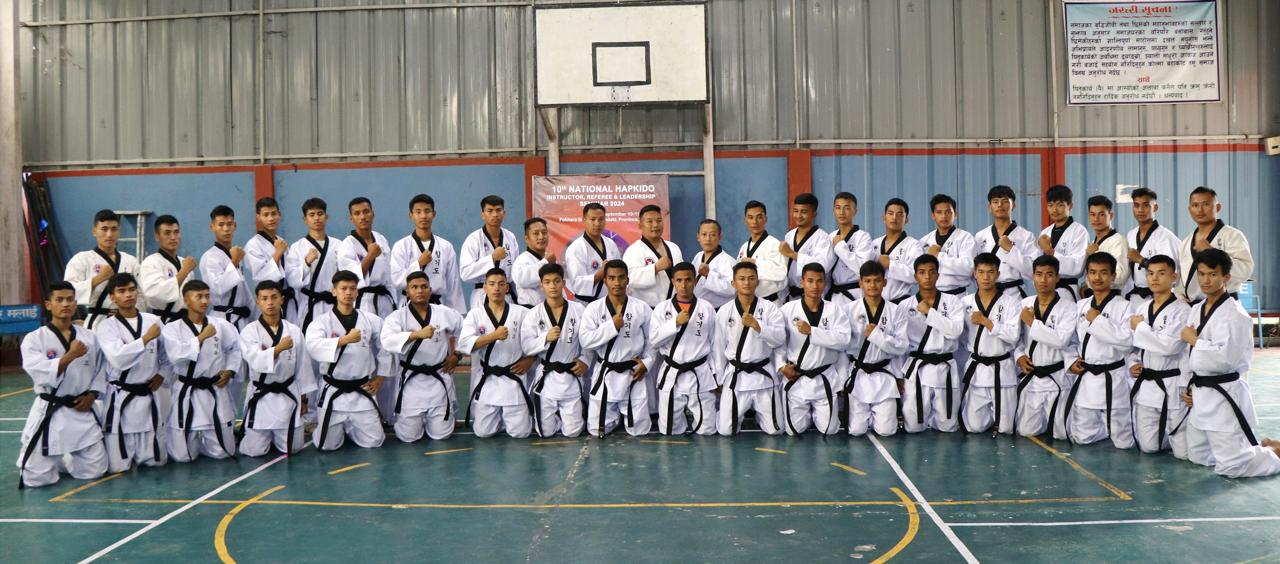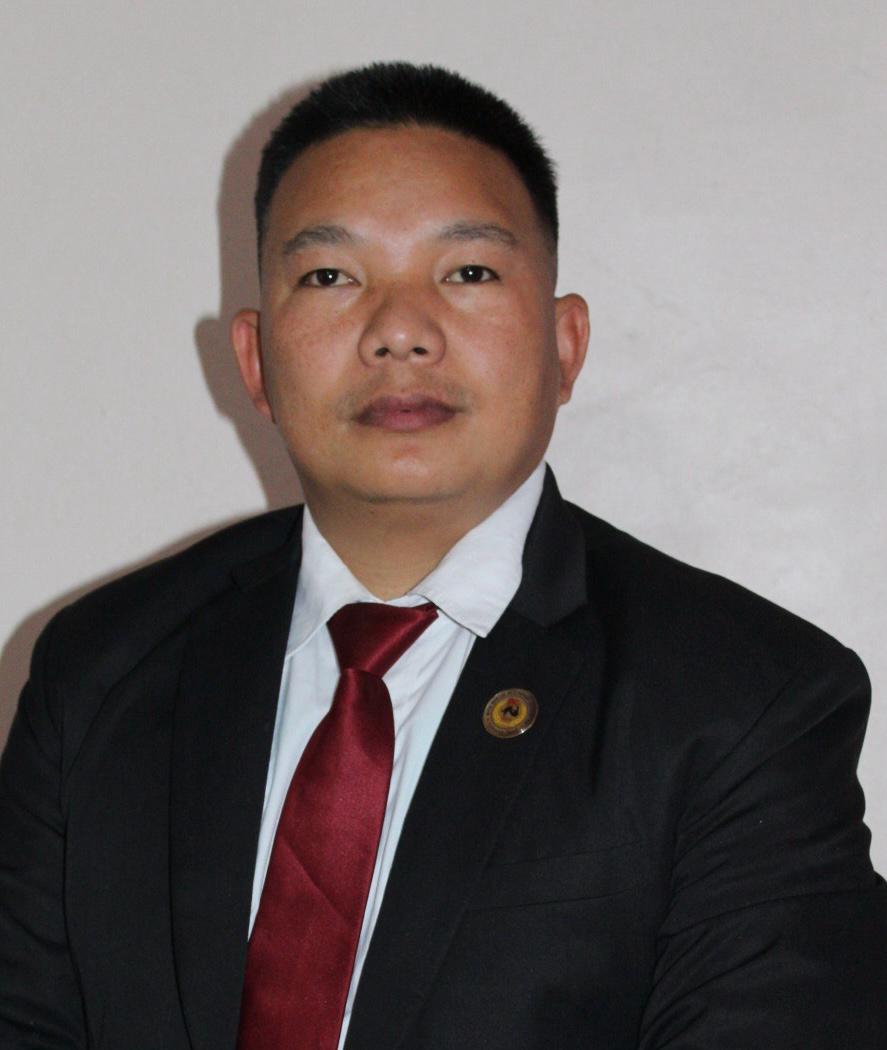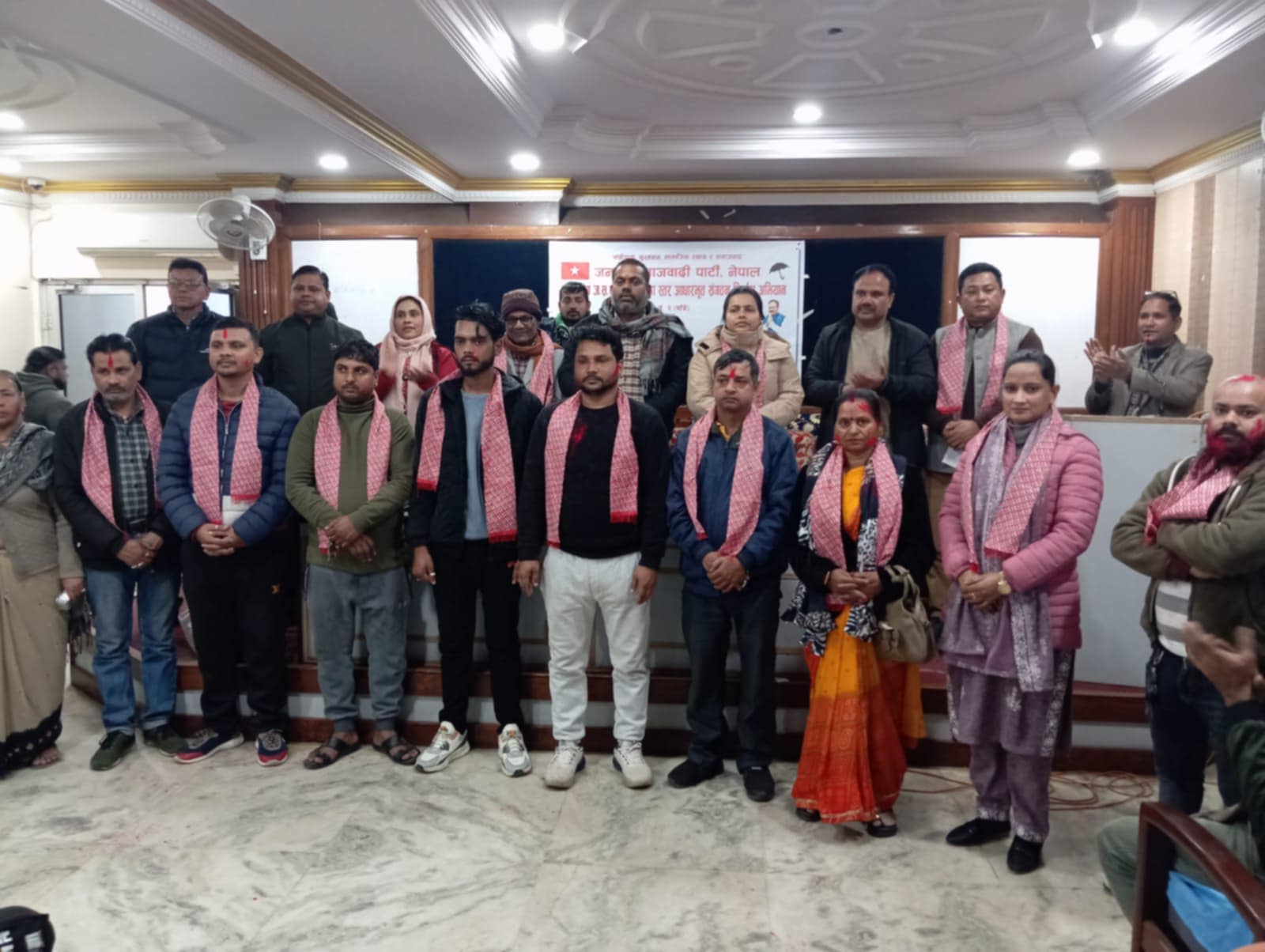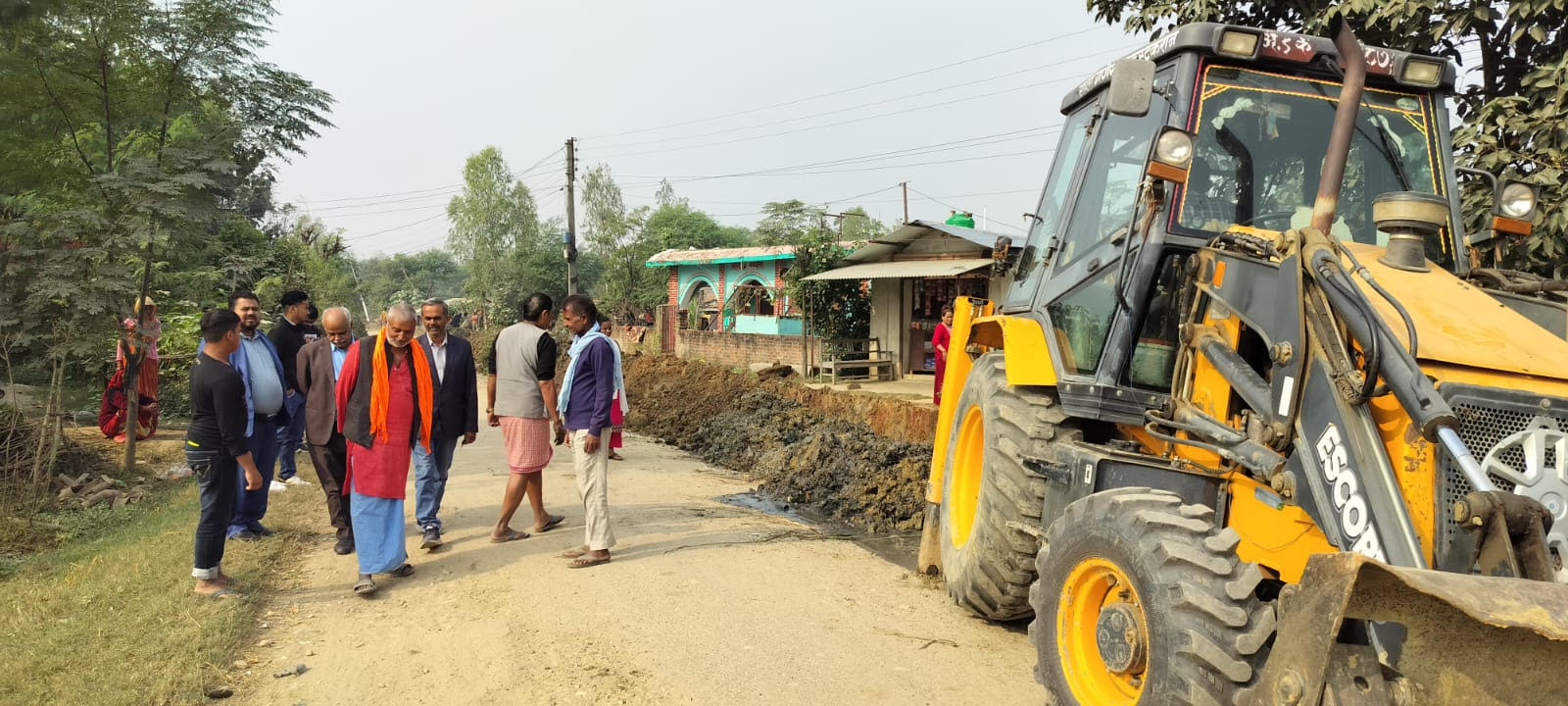Nepalgunj 2025-01-12
The Nepal Hapkido Association (NHA) serves as the official governing body for Hapkido in Nepal, operating under the guidance of the National Sports Council (NSC), the country’s highest authority for sports. Established with the goal of advancing Hapkido, the NHA focuses on fostering self-defense skills, physical fitness, mental resilience, and discipline among its practitioners. At the forefront of this movement is Grandmaster Kali Bahadur Gharti Magar, the founder of the NHA, whose leadership has created a crucial platform for athletes, coaches, and enthusiasts to thrive through participation in both national and international competitions.
In today’s rapidly changing world, the role of youth in shaping a nation’s future is undeniable. As the global demand for skilled professionals and entrepreneurs increases, creating opportunities for youth employment is essential—not only to provide income but also to foster self-reliance and personal growth. One significant avenue for youth development is the introduction of new sports like Hapkido in Nepal. The sport not only promotes physical fitness but also opens doors to diverse career paths, such as teaching, training, event organizing, and entrepreneurship.
Nepal’s youth face significant challenges in finding stable and meaningful employment. Many young people have limited options, often turning to traditional sectors like agriculture, tourism, or unskilled labor. However, the official recognition of Hapkido as a legitimate sport has opened new career opportunities that combine physical and mental development. This recognition has spurred growth within the sports and wellness industries, leading to the establishment of training centers, schools, and sports-related businesses, thus providing job opportunities for instructors and entrepreneurs alike.
The growth of Hapkido is reshaping Nepal’s job market by creating new sectors for employment. Over 2,100 dojangs (training centers) have been established across the country, and national championships, international seminars, and competitions contribute to the development of a dynamic sports industry. As Hapkido continues to grow, it is expected to provide substantial contributions to Nepal’s economy, benefiting sectors like tourism, event management, and wellness. This expansion not only creates jobs but also encourages increased investments in the fitness industry.
In addition to physical fitness, Hapkido imparts valuable life skills such as discipline, leadership, and teamwork—qualities that are highly sought after in today’s competitive job market. These skills, combined with the physical benefits of training, equip young individuals with the tools they need to succeed professionally. By promoting self-reliance through sports like Hapkido, youth are empowered to create their own career opportunities, whether through teaching, running businesses, or contributing to health and wellness initiatives.
The introduction of Hapkido in Nepal has ignited a movement, positioning youth as active agents of change. With Hapkido associations now operating in seven provinces and 66 districts, the sport is becoming an integral part of Nepal’s cultural and sporting landscape. This growth is driving social transformation. With continued support from infrastructure development, education, and government backing, Hapkido can become an even more powerful tool for empowering youth, creating jobs, and advancing national development.
A key milestone in Hapkido’s growth in Nepal is its expansion beyond urban areas. Originally concentrated in major cities, the sport has now spread to rural regions, where it is contributing to the empowerment and economic upliftment of young people. Hapkido’s reach in rural communities offers not just access to physical fitness and discipline but also opens up new opportunities for entrepreneurship in areas like wellness, fitness, and event management.
As Hapkido gains recognition as a mainstream sport in Nepal, its benefits extend well beyond physical development. By embracing Hapkido’s potential as both a personal and economic tool, Nepal is paving the way for a future where youth are not only skilled practitioners but also self-reliant entrepreneurs contributing to the nation’s progress. The growing network of Hapkido schools, associations, businesses, and employment opportunities presents a sustainable pathway to success for both individuals and the nation as a whole.
Nepali Hapkido athletes have already made a significant mark on the international stage, proudly representing Nepal in world championships, Asian championships, South Asian championships, and other global tournaments. Their success brings national pride and highlights Hapkido’s rising global recognition as a competitive and professional sport. As Nepali athletes continue to excel internationally, the potential for Hapkido to transform Nepal’s sports culture and youth development becomes ever clearer.
Written by Grandmaster Kali Bahadur Gharti Magar, this vision underscores the far-reaching impact of Hapkido in shaping a better, more prosperous future for Nepal’s youth. Through this sport, young people are empowered to take control of their futures, contribute to their communities, and drive social and economic change across the nation.




